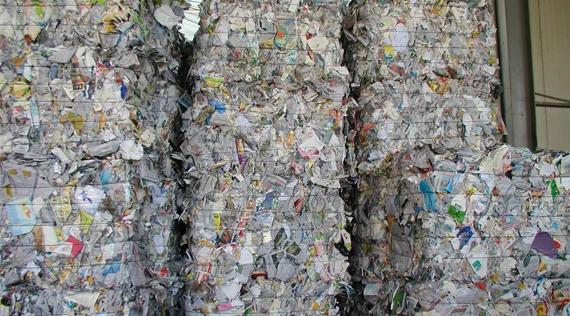
SEATTLE (Waste Advantage): Growing up near Cape Cod, Ben Kneppers felt an affinity with the ocean. “I lived right beside a cove, where my friends and I spent all our time catching blue crabs, clamming and exploring,” he says.
It’s no surprise that Kneppers grew up to become an environmental consultant — and avid surfer. His career took him to Australia, where he befriended David Stover and Kevin Ahearn, who shared his passion for catching waves. During late-night talks, the guys always seemed to return to the topic of plastic garbage in the ocean. They were constantly surfing over, around or through it.
“We’d find ourselves asking, ‘What if we could do something about that?” remembers Kneppers.
There didn’t seem to be an answer.
In 2012, Kneppers relocated to Chile for work. When he heard a program funded by the Chilean government was looking for sustainable start-ups to fund, he remembered those conversations with his friends. “For as much doom and gloom as we cast on ocean pollution, I figured it was probably actually solvable,” Kneppers says.
He reached out to Stover and Ahearn and suggested they figure out how. Stover has financial skills and Ahearn, engineering expertise. Kneppers, for his part, “researched the heck out of” ocean plastic. He interviewed local fishermen, scrutinized coastal infrastructure, and studied behavior and design. His conclusion? “Waste is a design flaw,” Kneppers explains. “If we designed something using a circular model, we could solve the problem that we created.”
In other words, what if local fishermen could be paid to harvest plastic waste? What if it was not only fished out of the water but transformed into something of value?
Kneppers thought back to his childhood and how his prized possession was a skateboard. It would take two pounds of plastic to produce one – but it could be sold for around a hundred bucks. That volume of plastic could easily be sourced from discarded fishing nets, which make up more than 10 percent of the world’s ocean pollution.
The guys had their idea.
They named their company Bureo, which means “the waves” in the language of the Mapuche, a group of native Chileans.
Once they received funds from the start-up accelerator, Stover and Ahearn moved to Chile to get Bureo’s fishnet collection and recycling program, “Net Positiva <https://bureo.co/pages/net-positiva> ,” up and running. Within six months, more than 6,600 pounds of abandoned fishing nets were collected.
The first (fish-shaped) skate deck, dubbed “The Minnow,” was manufactured from the upcycled debris.
Today, Net Positiva operates in dozens of villages throughout Chile. In 2017 alone, it salvaged more than 185,000 pounds of nets from the ocean.
Sidewalk cruiser skateboards were just the start. Bureo now makes sunglasses, surf fins and Frisbees. A partnership with Pokenobe Enterprises, the creator and owner of Jenga, led to the world’s first board game made from 100 percent recycled fishing nets.
Courtesy: https://wasteadvantagemag.com
| Copper Scrap View All | |
| Alternator | 0.31 (0) |
| #1 Copper Bare Bright | 3.64 (0) |
| Aluminum Scrap View All | |
| 356 Aluminum Wheels (Clean) | 0.72 (0) |
| 6061 Extrusions | 0.63 (0) |
| Steel Scrap View All | |
| #1 Bundle | 475.00 (0) |
| #1 Busheling | 495.00 (0) |
| Electronics Scrap View All | |